The Story of Menucha: Behind the Scenes of the Children's Program 'Sh'at Menucha'
I received an offer from the Hidabroot channel and was hesitant whether to expose myself or maybe it's better that people don't know my face, and it's enough that they know my style of writing and who I am. Behind the scenes of the 'Sh'at Menucha' program with author Menucha Fuchs.
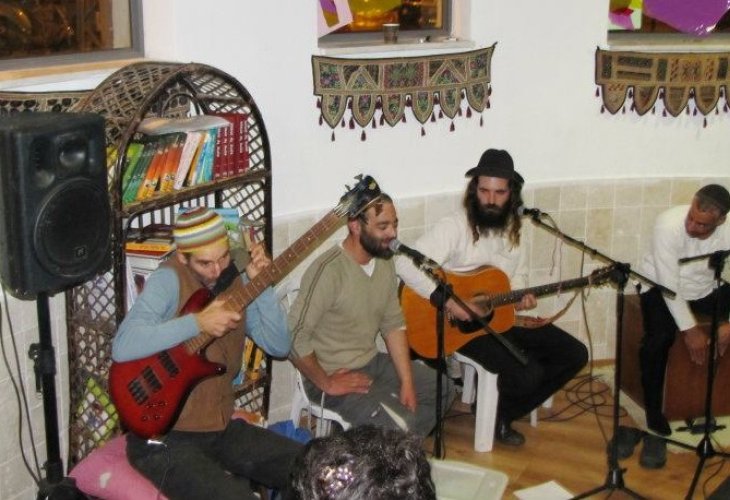
Radio silence greeted me as I entered the Hidabroot studio, where I came to cover the successful children's program 'Sh'at Menucha,' which has been broadcasting on the channel for a while and already includes over 140 episodes, available for viewing on the Hidabroot website. Strange. Just a few days before, when I came to review another program, the place was abuzz. Now, not even a fly dared to buzz here. Behind the studio, in the control room, sat Keren the producer and Stav, the camera director. They nodded at me in greeting as I tried to suppress the embarrassment I felt from the noise I made upon entering.
"Two, get ready," Stav directs professionally, and camera number two prepares for the next shot. Slowly, the camera closes in on the mustached worker picking coffee beans from the field, and the scene comes to an end.

I meet Fuchs – an author, parent counselor, and family adviser by training – during a filming break. Whether knowingly or unknowingly, she was waiting just for me in the dressing room. "Hello Shira, nice to meet you," she smiled warmly and extended her hand towards me. I immediately felt at ease with her – I already knew that there was something special about this woman. Something different, captivating, calling you to get closer and want to know her.
In the "Sh'at Menucha" program, Fuchs reads the children's stories she wrote, embedding important messages in children's consciousness. "Every story I write carries a certain message," Fuchs says. "A story without a message - isn't a story in my eyes. However, I strive with all my might to convey the messages gently and according to the intellectual capacity of the children. A child likes to decide on their own what to do and how to act. And when the message is conveyed indirectly – even if the application is not immediate, the child absorbs it. One day, they will indeed use what they’ve learned."
Homework in Rhymes
According to Fuchs, messages that are transmitted too strongly and overtly can spoil the pure enjoyment of the story and even cause the child to distance themselves morally. "Even subtle messages hidden in the plot carry great weight. For example, in this story," she points to one of the stories in the book before her and says, "it's about a fun-loving teacher who during recess goes out and plays hide and seek with his students – and then suddenly disappears. The children search for him everywhere and almost give up. Eventually, they return to the classroom, find him, and ask: 'Teacher, where were you? We searched almost everywhere.' And the teacher replies: 'I was here all along, waiting for you to come and look for me.' This story, for instance, has more humor in it, but there are double messages hidden within – both for adults and children. The message for the adult is that education must be done with humor and friendliness towards the child. The message for the child is that the teacher isn't a scary figure that must always be serious and restrained. The child learns that a teacher is a close person who understands his world – in fact, he can even play hide and seek with him."
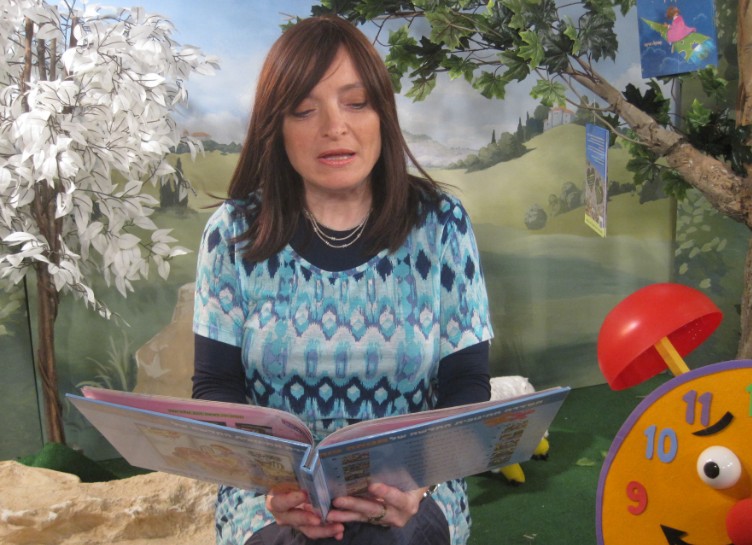 Love for writing from childhood
Love for writing from childhood "Already in my childhood, the love for writing sprouted in me and grew roots," Fuchs says, her gaze wandering as if seeking to dredge up details from the depths of memory. "As a child, I remember even writing my homework in rhymes," she laughs, "the teachers would go crazy with me. When I got married, writing officially became my main occupation when I started writing in the Haredi newspapers of the time – 'Marve Litzama' and 'Yated Ne'eman'. Other than politics, I wrote everything. At some point, children's sections were also added to the newspapers, and thus I found myself writing children's stories that gained great popularity among the public of parents and educators, and subsequently were also published as children's books with a Jewish line - something that at that time was greatly lacking." Her first books 'Yad El Yad', 'Between the Lines', and others were mainly intended for teenagers, and only later in life, she says, she began to devote her time to writing stories for young children.
At some point in the interview, we hear loud knocks on the dressing room door. "Break time is over, you need to wrap up," producer Keren Gomel informs us solemnly. "We have to start filming."
"Yes, yes, certainly. We’re done," I hasten to promise, only to discover that we had sunk into conversation for another twenty minutes.
Heart with Hidabroot
"I can see your 'SMS'," suddenly blurted Stav in the middle of the scene to producer Shiran Findler, who was in the studio, and camera 2 quickly captured the event showing her nimble fingers tapping on her phone screen. "I see you are texting your mother," she smiles.
A place where people from different backgrounds – secular, traditional, and religious – are together might become a wasp nest – a recipe for quarrels, intrigue, and baseless hatred. But that is not the case at the Hidabroot studios, where the first thing that strikes you as you enter is the good energy and strong sense of belonging.
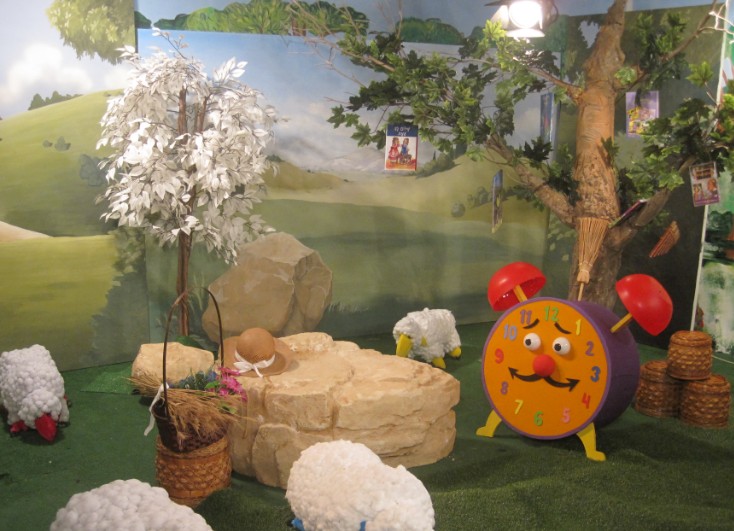 The studio where the program is filmed
The studio where the program is filmed "Photographers, get ready, four stand by. Three, two, one... and action," the voice of director Stav echoes, and another scene begins. "No cut, move on to the coffee story."
"Hello children, I am Menucha Fuchs, and I am very glad to be here with you. The story I will tell you today is about the origins of coffee beans. Do you know, children, where coffee came to us from?" asked the pleasant woman I talked to earlier, as she sat on a large rock with an illustrated book in her hand. I observed her calm demeanor through the screens and was amazed. Only later did I discover that her acting talent – accompanied by phenomenal mental calmness, while speaking fluent and eloquent Hebrew – was inherited by Fuchs as a divine gift and not from any academic institution.
"From Brazil?" Suddenly Stav's shout pierced the silence, not able to hold back.
"Just a moment, Stav," Fuchs smiled at one of the cameras and replied with a typical childlike tone, "we can't reveal where from. Otherwise, you won't listen to the end of the story."
Born from Love
300 books is no small achievement. How do you manage to meet everyone's expectations?
"Most people like to read a book by an author who thinks like them, who sees life through their lens. Therefore, they look for a style that suits them, with fitting lifestyle, with convincing descriptions and messages they aim for. It's difficult, and perhaps even impossible, to satisfy every reader. At first, I tried, but soon discovered it wouldn't help. Every author brings their lifestyle, their personal perspective, and unique aspirations. So I decided to be true to myself – and those who want to read, may do so. To my surprise, that's when I found out that all an author needs to bring with them to successfully convey their ethos is love. Love for people, love for the nation, love for creation – that's what brings you closer to the reader, opens their heart, and makes them want to hear what you have to say. And the truth is, since then, all I really do is to love."
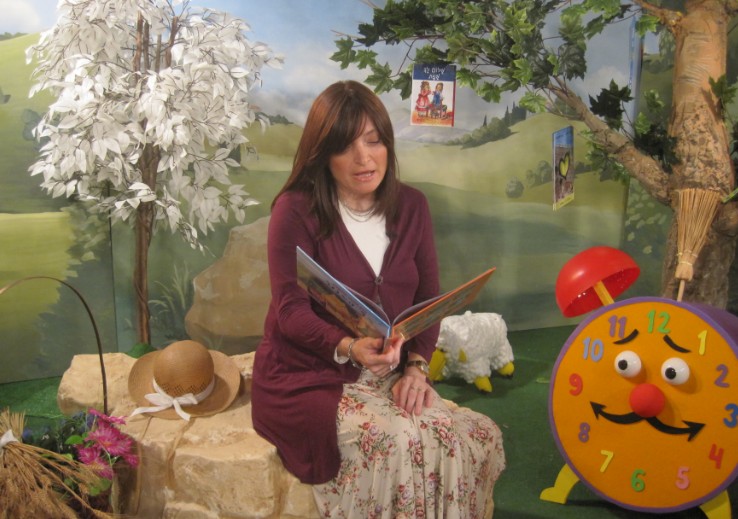
Those who believe that Fuchs' journey was lined with roses and without obstacles and dilemmas are mistaken. It's not so easy to love – when torrents of critiques rise with various statements about your books – that is to say, about who you are. "Since my book readers are people from all circles, I often encounter difficulties and dilemmas regarding the writing or illustrations. To date, I have used about 30 different illustrators directed by me to suit the reading level, style of the book, etc., and then I began to hear people from different backgrounds, of course contradicting each other: 'Why is the boy's sideburn so short? Why is the kippah so large? Why is the skirt so long? Why do the children in your books always have head coverings? Why are the drawings so realistic? Why are the drawings so doll-like?' and so forth. Originally, I tried to accommodate everyone, told myself: why should I alienate people with the illustrations? But I found out that nothing alienates people more than hypocrisy."
Tell Me What Your Book Is, and I’ll Tell You Who You Are
"An author must bring into the book themselves, their lifestyle, and their traits. If they don't, they are deceiving the readers. I realized I must be true. True in messages and true in illustrations. Once I was at peace with my doctrine – I understood that everyone reads me. Maybe they don’t agree with every line, but they read, express their opinion, and continue to read."
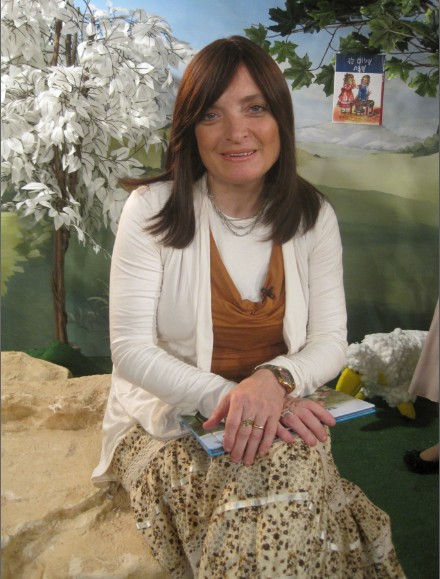 A program for parents coming soon
A program for parents coming soonEven concerning her participation in the children's program 'Sh'at Menucha' broadcasted on the Hidabroot channel, Fuchs experienced no few difficulties and dilemmas: whether it is appropriate to expose herself on screens, whether it might be considered immodest, Heaven forbid, and what about her close family – how would they react.
"True, I am known to many people through my books, through films (Saba Hoshea, Leah and Eliyahu, etc. – S.C.), through lectures and meetings I've been holding for many years, as well as through my radio programs (formerly on the 'Kol Hai' radio, and today in a parenting program on 'Kol Berama' radio – S.C.) – yet, these are mostly indirect ways in which people have not known me visually. When I received the offer from the Hidabroot channel, the dilemma was whether it's worthwhile to expose myself, or maybe it's better that they don't know my face and it’s enough that they know my style of writing and who I am, through the stories. Only after consulting with my father, Rabbi Elazar Havatzelet, who may he be well, the rabbi of the 'Chazon Ovadia' synagogue in Jerusalem, whom I consult with in every matter and action, did I reach the conclusion that if a person can give from themselves to make people happy, to do them good, to talk to them, and enrich their children educationally, spiritually, and intellectually – then why not, actually?"
These days, Fuchs strives to entertain the children watching the "Sh'at Menucha" program, while simultaneously ensuring not to overlook the parents, hoping that in the near future a special program for them will also be filmed.

